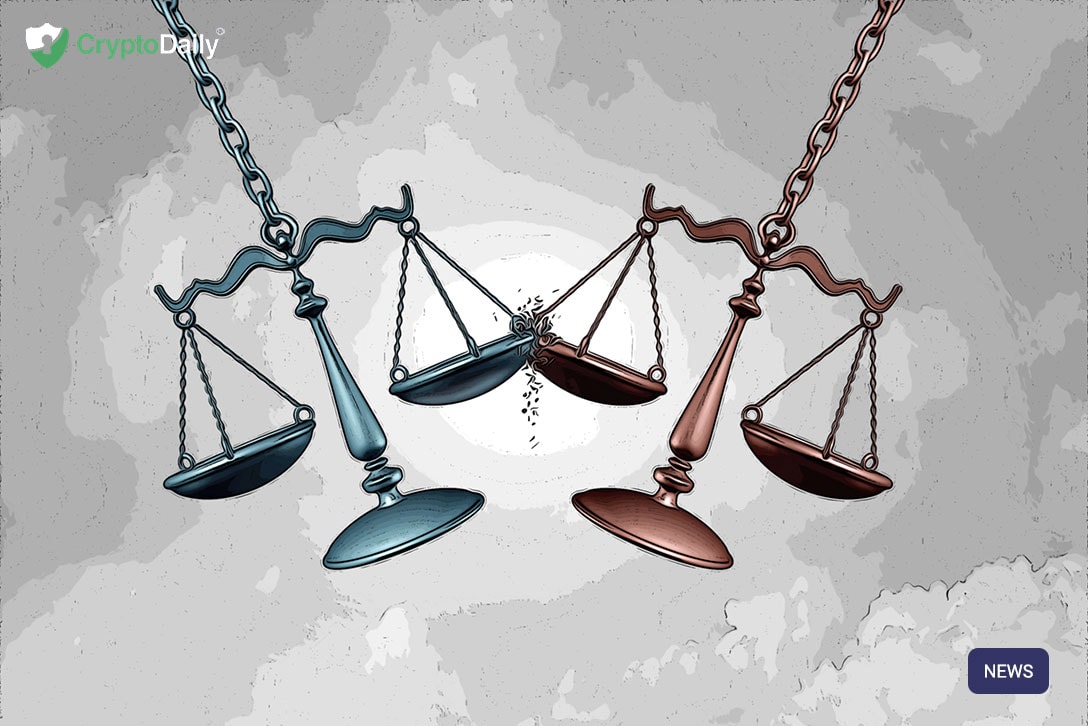A few weeks ago I used this space to take a look at all the opposition that was forming against Libra, Facebook’s announced cryptocurrency project. At the time, experts and legislators from all over the world were weighing in with variations on a singular theme of disapproval for Libra. Among the chorus of disparagers, none were louder than current US president Donald Trump, who took to Twitter to tell the world, “I am not a fan of Bitcoin and other Cryptocurrencies [sic], which are not money, and whose value is highly volatile and based on thin air,” before zeroing in on Libra specifically, and claiming it will have “little standing or dependability.”
Even though punchy tweets from the oval office have become a hallmark of the Trump years in America, and are often taken as flashes of rhetoric with tenuous connections to policy and reality, Trump’s takes on crypto still managed to scandalize some of his base.
Libertarian Roots Before the 2017 boom and all the subsequent corporate carpetbagging, the cryptocurrency community — though mostly apolitical — had a libertarian bent to it. This is only logical considering what cryptocurrency was created to be. Considering the origins of Bitcoin, that it was produced by Satoshi at the height of the global financial crisis as a means for individuals to store and exchange assets of value without having to place trust in a centralized banking system or cede control of their funds to a third party, it is only natural that it took root in an environment most conducive to its growth.
In American politics, decentralization, whether it be financial or governmental, tends to be a platform of the right. Speaking on the Rubin Report, Paypal co-founder and venture capitalist Peter Thiel explained the potential significance of cryptocurrency to the socio-political construct of the future by identifying it as an antithesis to artificial intelligence.
During the interview, Thiel identifies crypto as being libertarian in nature and AI as communist in nature, going on to explain that in the future, “It’s actually a choice. Do we want it to be centralized? Do we want it to be decentralized? And what I think AI can mean many different things but if it means you have large databases that are controlled by large governments that can monitor people more effectively, it’s something that could make communism maybe more effective, certainly more scary, more totalitarian than it ever was in the 20th century. It’s not a coincidence along these lines that the Chinese communist party hates crypto and loves AI.”
Trump’s Star Pupil Given the ideological implications, and President Trump’s frequent broadsides against the Federal Reserve, the independent central bank of the US, due to what he sees as policies stymying economic growth, Trump’s crypto invectives took many by surprise. To criticize a centralized project like Libra was to be expected, but to extend that criticism to the crypto industry as a whole rang like an attack on part of the president’s own base. And Trump’s tweets
came after the market had been steadily picking up steam, which led many to worry that his condemnation could pull the rug out from under the crypto rebound.

This week, the political implications of cryptocurrency are back in the news following comments made by former Trump adviser and co-founder of Breitbart, Steve Bannon. Bannon, like many in Trump’s orbit, has a colorful backstory. Before he started working with Trump, Bannon made a name for himself by turning Breitbart into a major right-wing news outlet. Then, he was able to translate his success and influence with Breitbart into a senior position on Trump’s campaign team and eventually a role in the White House as chief strategist. This all came crashing down in spectacular fashion in August 2017 when Bannon departed from the White House, after reportedly feuding with many members of Trump’s inner staff, including Jared Kushner and Ivanka, Trump’s daughter. Later, angered by comments allegedly made by Bannon to the press, Trump lashed out publicly at his former friend supplying him with the moniker “sloppy Steve” in the process.
About two years on, and Trump and Bannon seem to have reconciled somewhat, with Trump recently praising Bannon in a tweet, calling him his “pupil,” and claiming that he “loved working with him!” The mending of old ties here has to be in large part due to Bannon’s insistence on towing the Trump party line, even during his humiliating exile from that party. But this indefatigable support on Bannon’s part only makes his recent comments on cryptocurrency even more intriguing for the stark contrast they draw with those of his boss on the same topic.
Speaking with CNBC, Bannon said, “Cryptocurrencies have a big future. They could be a very important part going forward, particularly in this global populist revolt.” Like the aforementioned Thiel, Bannon sees cryptocurrency as a technology of high strategic significance. After his departure from the White House, Bannon has sought to replicate his success with Trump on the European continent by aiding populist movements. Ideologically, Bannon has long opposed globalism in favor of his own version of what is often characterized as a modern form of nationalism.
The Global Picture Globalism according to Bannon, whether it is embodied by the European Union or the NAFTA trade deal, necessitates the rule of the many by the few. In terms of cryptocurrency, Bannon sees the decentralizing capabilities of the technology as a necessary response to the concentrations of power created by the global banking system.
Bannon has bought long on cryptocurrency, revealing in the interview that he spent the cryptowinter of 2018 amassing more Bitcoin as he had “enough foresight, enough courage to buy it as it went all the way down.” And his enthusiasm does not end at Bitcoin: somewhat surprisingly, Bannon is supportive of Libra as he sees it as a weapon that can be used against China and other countries trying to work around the dollar with their own digital payment systems.
The anti-China sentiment, at least, is ideological common ground with Trump. This week, Beijing allowed the yuan to fall to its weakest position since financial crisis levels in 20098. The move is the latest development in a trade war between the US and China that shows no signs of abating. Concerns over the trade war have, however, breathed life into the sails of the crypto market which had been treading water since Trump’s comments on Libra.
Although our work at Bytecoin is centered upon technological development and we have little to do with political expediency, the current situation bears monitoring as further measures in the trade war could have even more pronounced ramifications in the crypto world. Regardless of how crypto is viewed by the average person, it is clearly a significant chess piece on the board of global politics. As reality gets further digitized by the day, cryptocurrency and its associated technologies only get more important.









